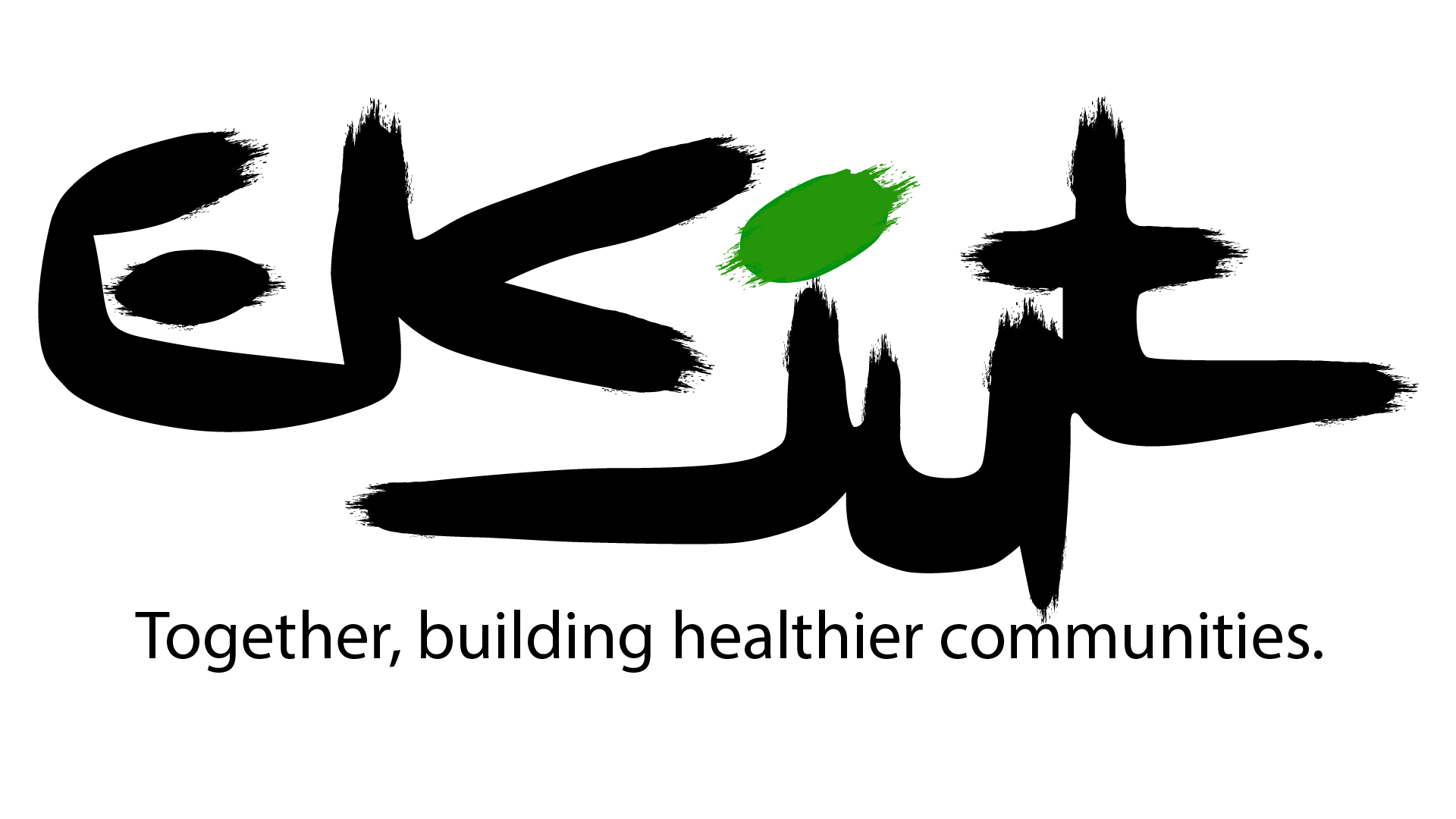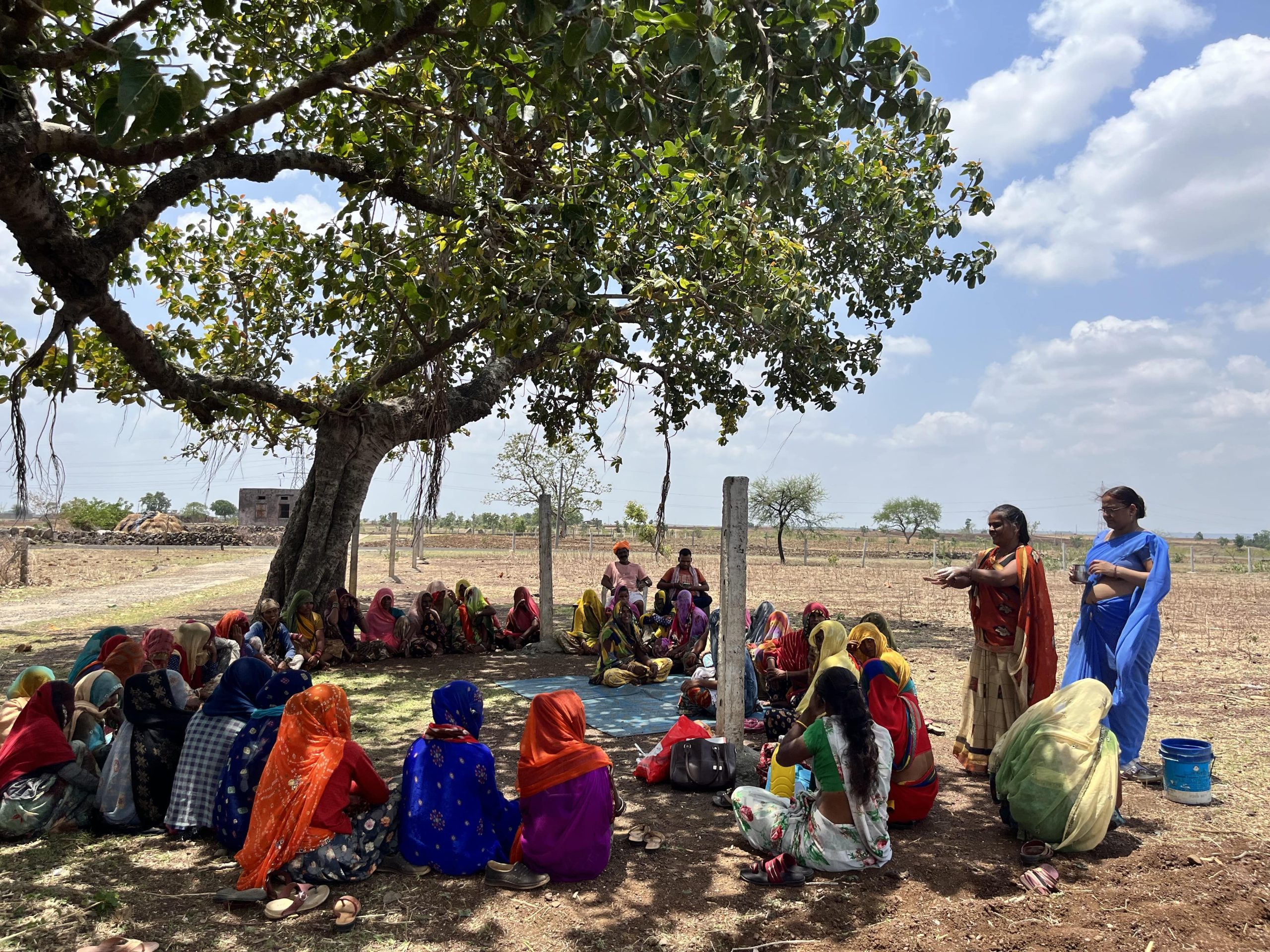Survive
Ekjut along with their collaborators worked with community members to save lives of mothers and newborn babies through a structured community capacity building approach to ensure their survival.
Our Reach



Our Impact


The community participatory approach to improve maternal and child health was first tried by Lisa Howard Grabman in the 1980s in a remote Bolivian province with limited access to modern medical facilities using the four phased intervention cycle that Ekjut has built upon and refined over the years. The project was called ‘the Warmi Project’. Following on the work in Bolivia, this was again used in Makwanpur in Nepal in a cluster randomized trial to see the impact of women’s groups intervention to reduce newborn mortality in 2001-03. The reduction in newborn mortality was 30% in 3years.
Learning from these two studies, Ekjut initially piloted in 3 villages of Jharkhand to test the feasibility and acceptance of the community before proceeding to do a cRCT in a population of 228156 that produced astounding results in three years[2005-08].

The Warmi Project, Bolivia

MIRA, Makwanpur, Nepal

Pilot Villages, Ekjut
The Ekjut Trial (2005 – 2008)
In 2004 in the bordering districts of Jharkhand and Odisha, of every 1000 livebirths, 58 newborns did not reach their 28th day of life. The newborn mortality rate (NMR) was 58. The Ekjut trial in collaboration with University College London, showed that a structured Participatory Learning and Action (PLA) meeting cycle cut down newborn deaths by 45% in the last 2 years of this 3 years (2005-08) trial.


36 clusters of villages and hamlets (380 villages) prospectively collected data on birth outcomes for the three years, of which 18 were control and 18 interventions. A cluster Randomized Control Trial (cRCT) was used to compare results from areas with similar population where Participatory Learning and Action was not implemented.
32% reduction of newborn mortality was observed over 3 years, and 45% in 2007-08.
Moderate Postnatal depression was reduced by 57% among mothers.
A robust surveillance system captured birth outcome data from sites in three delayed intervention districts that is plotted on a Variable Life Adjusted Display (VLAD) chart. This is a graphical representation showing the difference between the expected numbers of deaths and the actual number of deaths observed in real time. The upward moving blue line in the graph represents the Ekjut intervention villages, showing the lives of newborn babies saved in the intervention villages.

Monthly Participatory Learning and Action meetings were conducted by facilitators from the same community

Picture cards and stories were used by facilitators in the meetings to encourage communities to find causes of maternal and newborn deaths and feasible solutions and strategies to overcome these.


Link to our published paper
Jharkhand Odisha Health Action Research (JOHAR) Trial (cRCT) (2010 – 2012)
Post “The Ekjut trial“, we wanted to know whether a similar PLA meeting cycle approach would work through the Government system.
ASHAs (frontline health workers) saved lives of mothers and newborn babies in 5 districts.

30 clusters of villages in 5 districts of Khunti, Godda and Ranchi (Jharkhand) and Mayurbhanj and Rayagada districts (Odisha) were chosen of which 15 were intervention and 15 control clusters.

Monthly Participatory Learning and Action meetings facilitated by ASHAs in Odisha and Jharkhand (Sahiyas) reduced NMR by 31% when compared to the control areas.
Link to our published paper
Scale Up of PLA In Jharkhand Through The Government System: Facilitated Learning and Action Groups (FLAG)( 2015 – 2021)
FLAG (2015) was a collaboration with National Health Mission in Jharkhand to reduce newborn mortality, where Ekjut provided technical assistance for scaling up Participatory Learning and Action meeting cycle through the ASHAs and ASHA facilitators in all villages and hamlets of the state in three phases.
a) 6 Demonstration blocks of 6 districts.
b) Expanding to all blocks of the 6 districts.
c) Initial expansion to all blocks of 21 districts and then to all 24 districts.
Capacity Building in FLAG
Capacity building of ASHA facilitators and ASHAs was in a cascade mode


Surveillance in FLAG



One Key Informant per 2000 population.
-> Identifies all Births (Still Births and Live births).

Interviewer visits key informant to collect list of live births.
->Interviewer verifies live births.

Interviewer Interviews Mother/ Family member ONLY once at Six week after Delivery through Smart Phone.
->Interviews all mothers with Live Births and Still Births.

Data sent to server
-> Computation of Neonatal Mortality Rate.
Link to our published paper
Scale Up Of PLA In Madhya Pradesh through the Government System (2017-2023)
To improve maternal and newborn health indicators in 6926 villages of 41 selected blocks of high priority districts with the National Health Mission in Madhya Pradesh in 2017. This was done with 15 local NGO partners who were trained as master trainers who in-turn trained ASHAs and Poshan Sakhis (active woman from the Self-help Groups) in a cascade mode as facilitators to conduct Participatory Learning and Action meetings in their respective villages.


Participatory Learning & Action Initiative in Rajasthan (2021)

To strengthen the existing Village Health Sanitation and Nutrition Committees (VHSNC),the National Health Mission in Rajasthan has introduced Participatory Learning and Approach (PLA) to improve maternal, child health and nutrition indicators in 5 districts (Udaipur, Dungarpur, Pratapgarh, Banswara and Baran) for a series of PLA led VHSNC meetings since 2021. This involves the following components:
- Regularization of monthly meeting
- Action based planning and implementation of health programs
- Increased participation of beneficiaries in uptake of services
- Increased community participation at all levels
- Overall improvement in maternal and child health and nutrition indicators
Under this initiative, trainings are designed in cascade mode and VHSNC monthly meetings are conducted by trained ASHA workers.
The content of the monthly meeting are focused on:
- Role and responsibilities of VHSNCs,
- Maternal health and Nutrition of Mother and Children
- IYCF Practices & importance of complete immunization and regular growth Monitoring
- Impact of adolescent pregnancy and frequent pregnancy
- Impact of tobacco use
- Water and sanitation
Every month:
- More than 6000 monthly PLA led VHSNC meetings
- More than 8000 ASHAs are trained on Participatory Learning and Action meetings

Initiative in Uttarakhand (2021)
Following the advisory from Ministry of Health and Family Welfare, Ekjut could influence the state Government of Uttarakhand to include the participatory learning and action approach (PLA) in the National Health Mission budget in Uttarakhand in 2017-2018. Activities have been included in 2021- 2022 in the nine districts (Haridwar, Udhamsingh Nagar, Tehri, Uttarkashi, Bageshwar, Dehradun, Nainital, Rudrapyag and Champawat) with technical support from Ekjut and a non-financial Memorandum of Understanding has been signed between National Health Mission, Uttarakhand and Ekjut with the objective of strengthening effective roll out of Participatory Learning and Action initiative for improvement in maternal and children health and Nutrition in the state. The key activities included – Training of ASHA Facilitators at District Level by Ekjut team, Participatory Learning and Action meetings at Village Level by ASHA facilitators and strengthening of the supportive supervision mechanism for PLA meetings in districts and analysis of data collected from the field.

Participatory Group meetings through Community Health officers (CHOs) for the prevention of risk and promotion of health (2023)
Ekjut in collaboration with Noora Health aims to adopt two novel community based interventions i.e. Caregiver Companion Program (CCP) of Noora Health and Participatory Learning and Action (PLA) meeting cycle approach of Ekjut. These integrated participatory meetings will be implemented in 10 Ayushman Arogya Mandir each in one district of Jharkhand by Ekjut and in one district of Andhra Pradesh by Noora Health. These meetings will be facilitated by Community Health officers (CHOs) on Maternal, Neonatal and Child Health (MNCH).
Community Health officers (CHOs) are the newly recruited cadre of midline healthcare providers and their role is envisaged to strengthen public health actions and mobilize communities for Promotion of health and Prevention of risk factors and illnesses to effectively deliver Comprehensive Primary Health Care through Ayushman Arogya Mandir under Ayushman Bharat-Health and Wellness Center scheme. The main objective of this program is to enrich the health promotion engagement of CHOs with community through participatory group meetings and test the feasibility and impact of the participatory meetings.









